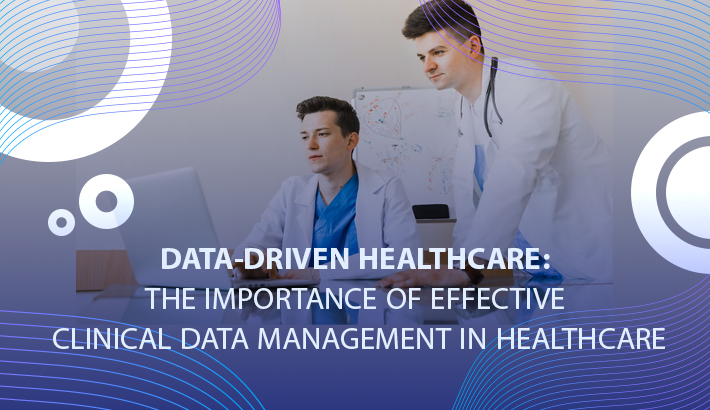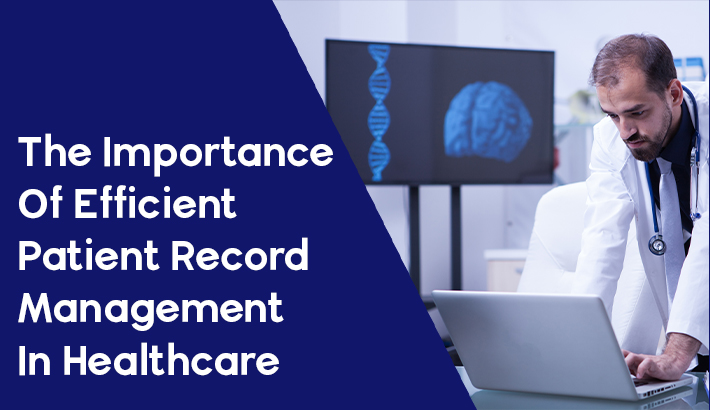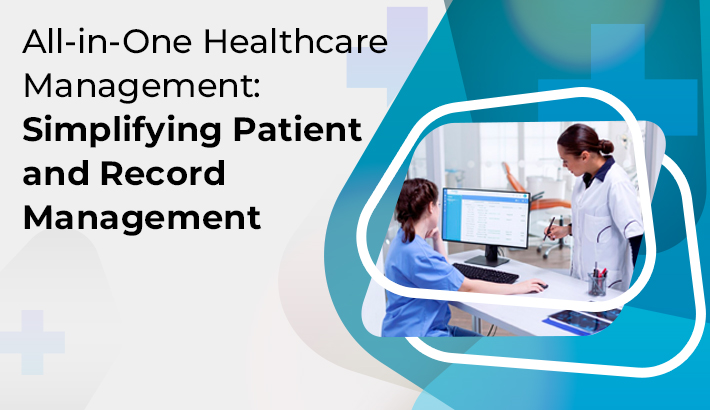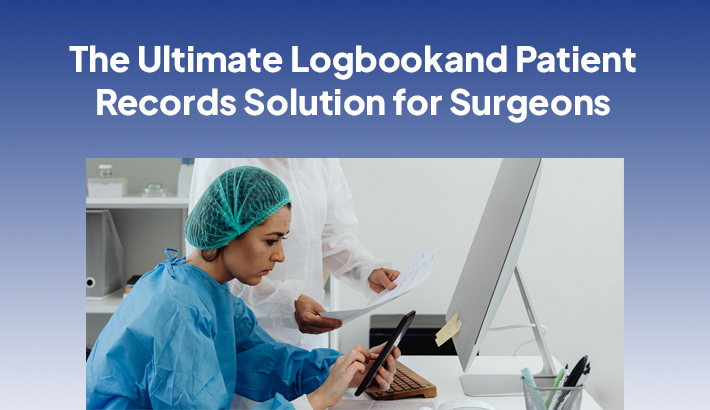In the ever-evolving healthcare industry, data-driven decision making is becoming increasingly important. With the abundance of patient data available, healthcare providers are beginning to understand the value of effective clinical data management. In this article, we will explore the significance of clinical data management in healthcare and how it can transform the industry. By effectively managing clinical data, healthcare professionals can make informed decisions, leading to improved patient outcomes, streamlined operations, and optimized resource allocation. Additionally, we will explore the challenges faced in clinical data management and discuss the benefits it brings, such as personalized medicine, predictive analytics, and population health management. Join us as we delve into the world of data-driven healthcare and discover its potential to transform the way we deliver and experience healthcare.
Understanding Clinical Data Management
Clinical data management is the process of collecting, organizing, and maintaining accurate and reliable clinical data in healthcare systems. It involves the collection of patient health information, medical records, laboratory results, treatment plans, and other relevant data, and ensuring its accuracy, completeness, and confidentiality.
The significance of clinical data management lies in its ability to support evidence-based medicine, improve patient care and outcomes, enhance operational efficiency and resource allocation, and empower healthcare providers with timely and accurate information.
Despite its importance, there are challenges in managing clinical data, such as ensuring data accuracy, completeness, and reliability, implementing robust data governance policies and procedures, and leveraging technology and tools for efficient data collection, integration, and analysis.
However, effective clinical data management brings numerous benefits, such as personalized medicine and targeted treatments, predictive analytics for disease prevention and early intervention, and population health management and risk stratification.
To address these challenges, organizations must comply with privacy and security regulations, consider ethical considerations in data sharing and patient consent, and ensure accountability and transparency in data-driven healthcare.
By implementing effective clinical data management strategies, healthcare organizations can improve patient outcomes, achieve cost savings, and pave the way for the future integration of artificial intelligence, machine learning, wearable devices, and the Internet of Things in clinical data management.
The Key Benefits of Effective Clinical Data Management
Effective clinical data management is essential for healthcare organizations to make informed decisions and improve patient care outcomes. With the growing reliance on data-driven decision making in the healthcare industry, the benefits of effective clinical data management are numerous.
Improved patient care and outcomes: By analyzing patient data, healthcare professionals can identify patterns, trends, and correlations that help in making accurate diagnoses, personalized treatment plans, and predicting disease progression. Evidence-based medicine empowers medical practitioners with the knowledge to deliver targeted and effective care. This, in turn, leads to better patient outcomes, reduced medical errors, and improved patient satisfaction.
Enhanced operational efficiency: Clinical data management ensures the availability of accurate and up-to-date patient information, enabling seamless coordination among healthcare providers. This streamlines patient care processes, minimizes duplication of efforts, and reduces administrative burdens. Moreover, effective clinical data management allows healthcare organizations to identify bottlenecks, optimize resource allocation, and improve healthcare delivery.
Empowering healthcare providers: Access to timely and accurate clinical data equips healthcare providers with the necessary information to make informed decisions. It enables them to monitor treatment effectiveness, adjust medications as needed, and recommend evidence-based interventions. Data-driven healthcare also allows medical practitioners to stay updated with the latest research and clinical guidelines, thus improving the overall quality and consistency of care.
Overall, effective clinical data management is crucial for healthcare organizations to improve patient care outcomes, enhance operational efficiency, and empower healthcare providers with accurate information. It plays a vital role in the shift towards data-driven decision making in the healthcare industry.
Addressing Challenges in Clinical Data Management
While clinical data management offers numerous benefits, it also poses certain challenges that need to be addressed.
Ensuring data accuracy, completeness, and reliability: Accurate, complete, and reliable data is crucial for making informed healthcare decisions. Healthcare providers should implement robust data validation processes, train staff on data entry protocols, and actively monitor data quality. Regular audits and feedback mechanisms can help identify and rectify any data inconsistencies or errors.
Implementing robust data governance policies and procedures: Data governance refers to the framework and processes that govern how data is collected, stored, protected, and shared. Effective data governance ensures the privacy and security of patient information, complies with relevant regulations (such as HIPAA), and enables data interoperability. Healthcare organizations should establish clear data governance policies and engage stakeholders to ensure compliance and minimize the risk of data breaches.
Leveraging technology and tools: Healthcare providers should leverage technology and data management tools to streamline clinical data collection, integration, and analysis. Electronic health record (EHR) systems, data warehouses, and data analytics platforms can help automate data processes, improve data accuracy, and provide real-time insights. Additionally, the use of machine learning and artificial intelligence can enhance data analysis capabilities, identify patterns, and predict outcomes more accurately.
By addressing these challenges, organizations can harness the full potential of clinical data management, improving patient care and outcomes, enhancing operational efficiency, and empowering healthcare providers with timely and accurate information for decision making. The implementation of robust clinical data management practices will also contribute to the advancement of evidence-based medicine and transformative healthcare delivery.
Applications of Data-Driven Healthcare
Data-driven healthcare has the potential to revolutionize the way healthcare is delivered and managed. By harnessing the power of clinical data, healthcare providers can make more informed decisions, personalize treatments, and improve patient outcomes. Data-driven healthcare has numerous applications that have the potential to revolutionize patient care and management.
Personalized medicine and targeted treatments: By analyzing patient data, healthcare providers can identify genetic predispositions, predict treatment responses, and customize therapies accordingly. Personalized medicine enables the delivery of targeted treatments, reduces adverse reactions, and improves patient outcomes.
Predictive analytics for disease prevention and early intervention: By analyzing data from large populations, healthcare professionals can identify risk factors, predict disease progression, and develop preventive measures. Early intervention based on data-driven predictions can lead to better management of chronic diseases and improve population health.
Population health management and risk stratification: Aggregating and analyzing patient data can help identify high-risk populations, assess the impact of interventions, and allocate resources effectively. Data-driven population health management allows healthcare organizations to focus on preventive care, reduce hospital readmissions, and improve overall population health outcomes.
Overall, the applications of data-driven healthcare are vast and have the potential to significantly improve patient care and outcomes.
Regulatory and Ethical Considerations
As healthcare providers embrace data-driven healthcare, it is essential to address regulatory and ethical concerns.
Compliance with privacy and security regulations: Healthcare organizations need to ensure compliance with privacy regulations, such as the Health Insurance Portability and Accountability Act (HIPAA). Protecting patient data privacy and implementing robust security measures are essential to maintain patient trust.
Ethical considerations in data sharing and patient consent: Data sharing among healthcare providers and researchers should be done ethically and with patient consent. Healthcare organizations should prioritize transparency, inform patients about data usage, and provide options for opting out of data sharing.
Ensuring accountability and transparency: Healthcare providers should establish mechanisms to ensure the accountability and transparency of data-driven healthcare practices. Open communication, clear policies, and periodic audits are crucial to maintaining trust and ensuring responsible use of patient data.
Cost Efficiency and Resource Management
Effective clinical data management plays a crucial role in enhancing cost efficiency and resource management in healthcare organizations. By properly managing and analyzing clinical data, healthcare providers can identify areas of improvement, optimize resource allocation, and streamline workflow processes.
One of the key benefits of effective clinical data management is the ability to identify patterns and trends in patient outcomes, resource utilization, and treatment effectiveness. This valuable insight enables healthcare organizations to make informed decisions about resource allocation, ensuring that resources are used efficiently and effectively.
Furthermore, clinical data management allows for the identification of areas where cost savings can be achieved. For example, through data analysis, healthcare organizations can identify unnecessary tests or procedures, leading to cost savings and improved resource utilization.
In addition, effective clinical data management enables organizations to identify opportunities for process improvement and quality enhancement. By analyzing clinical data, healthcare providers can identify areas where workflows can be streamlined, reducing inefficiencies and improving patient care.
Overall, effective clinical data management is essential for cost efficiency and resource management in healthcare organizations. It enables organizations to make data-driven decisions, optimize resource allocation, and improve operational efficiency, leading to improved patient care and increased cost savings.
Future Trends and Opportunities
The future of data-driven healthcare is promising, with several emerging trends and opportunities.
Integration of artificial intelligence and machine learning: The use of AI and machine learning algorithms can augment clinical decision making, enable predictive analytics, and automate routine tasks. These technologies have the potential to revolutionize diagnosis, treatment, and patient monitoring processes.
Wearable devices and the Internet of Things (IoT): The increasing adoption of wearables and IoT devices generates real-time patient data that can be leveraged for continuous monitoring, early detection of anomalies, and remote care. This data can play a crucial role in preventing hospital readmissions and improving patient outcomes.
Potential to revolutionize healthcare delivery: Data-driven healthcare has the potential to transform healthcare delivery models. By harnessing the power of data, healthcare organizations can shift towards proactive, preventive, and personalized care, leading to better patient outcomes and improved population health.
Overall, the future of clinical data management holds immense potential for improving patient care, healthcare outcomes, and the overall efficiency of the healthcare industry. By adopting these emerging trends and opportunities, healthcare providers can harness the power of data to deliver more personalized and effective care.
Why Choose Dr. Log: Revolutionizing Clinical Data Management
Dr. Log is a comprehensive and user-friendly logbook application designed to revolutionize the way healthcare providers manage and organize clinical data. With its intuitive interface and robust features, Dr.Log offers a multitude of benefits that set it apart from other applications in the market.
One of the key advantages of Dr.Log is its ability to efficiently store and manage patient information. Healthcare providers can easily input and access crucial medical data, including medical history, medications, allergies, vaccinations, and test results. This not only streamlines the workflow but also reduces the risk of data errors and ensures accurate and up-to-date information.
Furthermore, Dr.Log allows healthcare providers to organize and store essential documents, such as discharge summaries and letters of recommendation. This eliminates the need for paper-based documents and provides a centralized storage system that can be easily accessed whenever needed.
Dr.Log also prioritizes patient privacy and data security. It complies with all relevant privacy regulations, such as HIPAA, ensuring that patient information is protected and confidential.
With its efficient features and user-friendly interface, Dr.Log is the ultimate solution for healthcare providers looking to streamline clinical data management and improve patient care outcomes. By choosing Dr.Log, healthcare providers can unlock the full potential of data-driven healthcare and transform the way clinical data is managed and utilized.
Conclusion
Effective clinical data management is crucial for the success of data-driven healthcare. By leveraging patient data, healthcare providers can improve patient care, enhance operational efficiency, and make evidence-based decisions. However, challenges such as data accuracy, data governance, and technological integration need to be addressed. As healthcare organizations embrace data-driven practices, they must prioritize regulatory compliance, ethical considerations, and ensure transparency. With the integration of artificial intelligence, wearable devices, and IoT, the future of data-driven healthcare looks promising, with the potential to revolutionize healthcare delivery and improve patient outcomes. Dr.Log is an excellent solution for streamlining clinical data management and improving patient care outcomes, enabling healthcare providers to harness the full potential of data-driven healthcare.
Overall, the future of clinical data management holds immense potential to transform the healthcare industry and revolutionize healthcare delivery.




